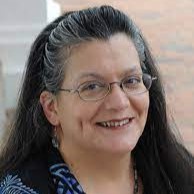Come on, shapeshifter—
I can’t dance either.
But I want to hold
your shadowy body,
hum crooked tunes
into your abalone ear.
Out here on the edge,
desperadas don’t always
make good lovers.
Sometimes our scars
match too well; touch
is barbed wire and border.
I’ll try not to hide behind
my bruises if you’ll
give me the hard gray line
of your shoulder.
Can’t you hear
the cricket’s ebbing
daysong? Let me
tuck that tidal melody
into the wine-colored
strands of your hair,
braid your name
with horizon’s indigo
kiss. Glorious outlaws,
we’ve got nothing to lose
but this edge.
Published:
2018
Length:
Regular
Literary Movements:
Contemporary
Anthology Years:
2025
Themes:
Bilingual
Body & Body Image
Identity
LGBTQ+ Experience
Love & Relationships
Literary Devices:
Enjambment
a line break interrupting the middle of a phrase which continues on to the next line
Metaphor
a comparison between two unrelated things through a shared characteristic
Rhetorical Question
a question asked for effect, not necessarily to be answered
Sensory Detail
words used to invoke the five senses (vision, hearing, taste, touch, smell)
Surrealism
a style of art and literature in which ideas, images, and objects are combined in a strange, dreamlike way.
Tercet
A stanza of three lines of verse that rhyme together or are connected by rhyme with an adjacent stanza.
Transferred Epithet
When an adjective usually used to describe one thing is transferred to another.

